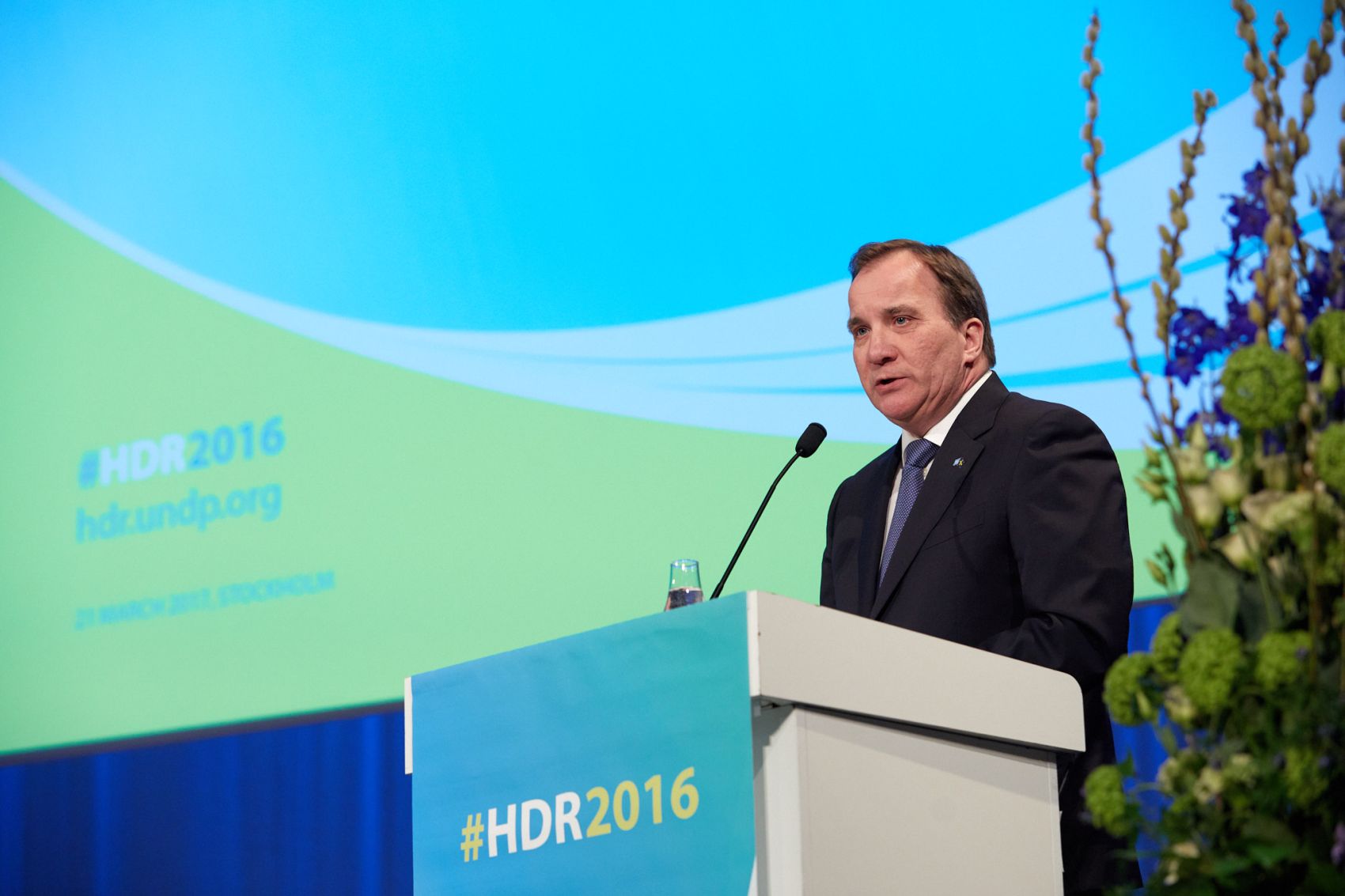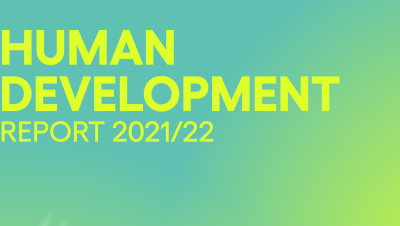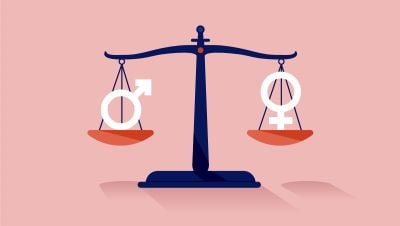I am honoured to be here. A special thanks to Helen Clark and the United Nations Development Programme, who have made this possible, and to Mr Selim Jahan and his Human Development Report Office and team, who once again have given us an inspiring report which will continue to push us towards the world we want.
***
I would like to start by quoting from Professor Hans Rosling, who sadly passed away last month.
He once said:
"The first thing to think about the future is to know about the present."
Hans Rosling really changed our view of the world today. He did it with statistics, showing that the world is actually a better place than most people think. He gave us the most important tool there is for change – hope.
The Human Development Report has become an institution. This unique report has not only helped to establish a new broad definition of development, but also to evaluate the progress made and make setbacks visible using statistics.
This report puts pressure on us as leaders around the world to keep raising our ambitions and following-up on areas that need support.
Looking back on past Human Development Reports, I am impressed by some of the amazing improvements that have been achieved. What took Sweden 100 years to achieve in terms of schooling and life expectancy, many of today's developing countries are doing within a generation – 25 years.
This year's edition of the Report is special, since it is the 25th.
We can actually follow changes in the development landscape over the course of one generation, from the end of the cold war when mulitlateralism flourished, to a period when globalisation integrated people, markets and work and to a time when digitalisation profoundly changed our way of life.
And, since then, development has accelerated.
In 25 years, life expectancy in China went from 69 years to 76 years.In Colombia, the expected years of schooling went from 9 to almost 14. In Tunisia, the average income per person doubled.
And the big picture: fewer than 10 per cent of the world's population
now live in extreme poverty. Nine out of ten boys and girls go to school. Billions of people have gained access to clean water. A global middle class is emerging and one in two people have access to a mobile phone.
The world's population is actually better-educated, better-fed, and healthier than ever before.
***
Therefore, it is time to raise the bar. And this is what we have done with the new Global Goals and the 2030 Agenda.
Because the challenges ahead are still huge.
We see deepening wars, conflicts and terrorist attacks and, in their wake, the worst refugee crisis in modern times.
We see growing public scepticism of free trade and globalisation,
and growing populist and extremist forces.
And, last year, was also the warmest on record.
Climate change is catching up with us.
And, even though we are seeing less extreme poverty around the world, inequality is increasing. If you fill a bus... I used to say a bus, but now it is actually a minibus.
If you fill a minibus with the richest people in the world, they own as much as the poorest 3.5 billion people.
It is absurd. It is totally unacceptable.
***
I welcome the theme of this year's report: human development for everyone.
It highlights the need for equality.
Leaving no one behind needs to become the way we operate as a global community.
There is a moral dimension, of course, but there is also an economic one. Equality is winning new ground among economists.
Let me quote one of them, the IMF's Managing Director Christine Lagarde. She says:
"You do not have to be an altruist to support policies that lift the incomes of the poor and the middle class. Everybody will benefit from these policies, because they are essential to generate higher, more inclusive and more sustainable growth."
Simply put – equal societies perform better.
***
We must address the problems in the global labour market,
build social cohesion and shape a form of globalisation that represses no one, and benefits everyone.
This is also the driving force behind our Global Deal initiative. It encourages cooperation between employers, employees and governments to bring about decent work, increase productivity, and enhance economic stability and shared prosperity.
It is time to make globalisation work for everyone.
***
When I say everyone, I mean everyone.
Globalisation must work for both women and men.
One of Sweden's strongest forces for development is the fact that both women and men work. We have one of the highest employment rates in the world. It is well-known that women's participation in the economy has positive effects on just about everything – growth, health, education and food security.
A general welfare-system is key for women's liberation.
But still, women in Sweden are also paid less. They do more of the unpaid work at home. The fight for gender equality must go on. In Sweden, and in the rest of the world. The gender inequality index that was introduced in 2010 helps us to keep track of one of the chief factors blocking human development.
Women and men are equal.
Women and men should be treated equally.
Women and men should have equal opportunities.
Nothing else will do.
***
Finally,
I would like take the opportunity to thank you, Helen, for having done a remarkable job.
You have served with admirable dedication and unwavering resolve. Under your leadership, UNDP has empowered people to lift themselves out of poverty and create sustainable livelihoods, in times of severe financial crisis.
You have compelled the UN Development System to increase coherence – and brought home the necessity of the UN acting in unison on the delivery of the 2030 Agenda.
For Sweden, and for me personally, it has been a privilege to be your partner.
I am now eager to listen to you addressing the opportunities and challenges that lie ahead, armed with the knowledge, facts and statistics in this year's Human Development Report.
Thank you.
Kontakt
Dan Lundqvist Dahlin
Pressekreterare i Statsrådsberedningen
Telefon (växel) 08-405 10 00
Mobil 072-553 66 29
e-post till Dan Lundqvist Dahlin


